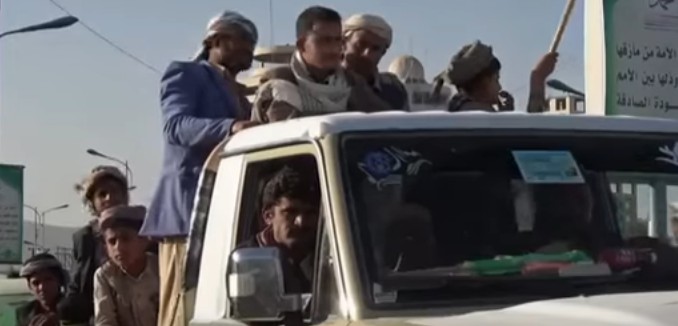The Iranian-backed Houthi rebels in Yemen have been accused of holding six prominent members of the Baha’i religious minority as prisoners of conscience and fabricating criminal charges against them, including colluding with Israel, The National reported last week.
The deputy human rights minister of the internationally recognized Yemeni government said officials had repeatedly requested the release of all Baha’i detainees imprisoned by the rebels under a prisoner exchange deal agreed at UN-led peace talks in Sweden last month.
However, Majid Fadhil said that the Houthis have not responded to the government’s request and remain in violations of the fragile peace agreement reached between the two warring parties.
One of the charges leveled against the Baha’i detainees, Fadhil said, include “communication with Israel because the Baha’i House of Justice is located in Haifa, Israel.” In Iran, the existence of the center is often used as an excuse by the regime to depict Baha’is as Zionist agents, who deserve to be suppressed.
On Tuesday, Baha’i leader Hamed bin Haydara appeared in court in Sana’a for an unexpected hearing. Haydara has been held as a prisoner of conscience since December 2013 and was prosecuted in January. Charges against him included communicating with Israel and spreading the Baha’i faith, for which he received the death penalty.
Five other leaders of the Baha’is faith are currently held by the rebels in Sanaa. The prisoners have been identified as Waleed Ayyash, Wael Al Al Ariki, Sheikh Akram Ayyas, Badea Senai, and Qwan Mohammad Qadri.
Qadri, who is of Iranian descent, is a former employee of the British Council in Yemen.
In April 2018, the international office of the Baha’i Faith community warned of the Houthi’s “genocidal intent” against their people in Yemen, after Abdel-Malek al-Houthi, the leader of the Houthis, in a televised speech “vehemently vilified and denounced the Baha’i Faith, further intensifying the ongoing persecution of the Baha’is.”
According to Baha’i representatives, al-Houthi “employed a rhetoric reminiscent of statements made by the Supreme Leaders of Iran in former and recent times and strongly denounced the Baha’i Faith.”
The Houthi leader described the Baha’is as “satanic” and as a movement that is “waging a war of doctrine” against Islam. He further denounced Baha’is as infidels and deniers of Islam and Muhammad and spread other falsehoods about the faith and its relationship to western countries and Israel.
The Baha’is, Iran’s largest non-Muslim religious minority, remain among the most persecuted groups in the Islamic Republic and are branded a heretical political cult by the mullah regime. Julie Lenarz, a Senior at The Israel Project, observed in an essay published in The Tower Magazine in March 2017 that “It is impossible to describe the systematic destruction of their community as anything other than cultural genocide.”
More than 200 Baha’i leaders have been put to death in Iran and more than 10,000 have been dismissed from the public sector since 1979. Approximately 90 Baha’is are being held in prisons without due process.
[Photo: AP Archive / YouTube ]




